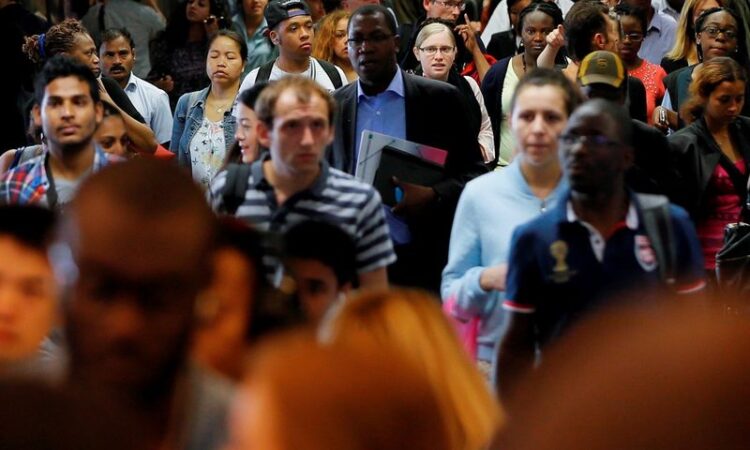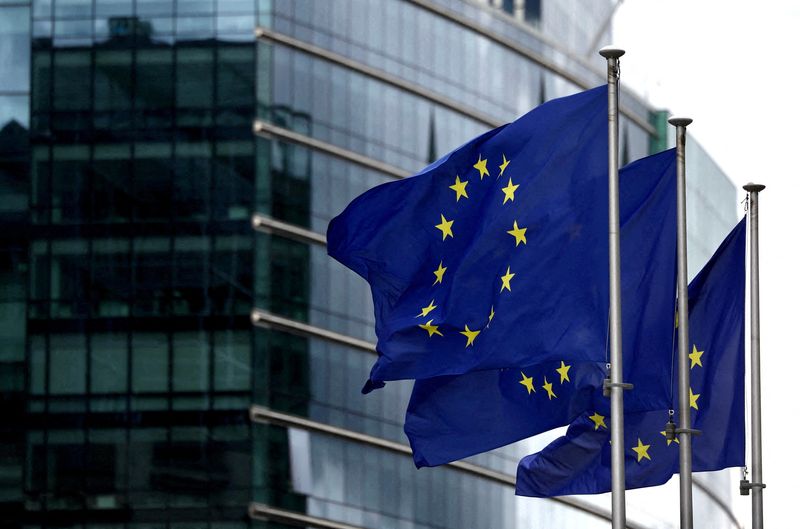

© Reuters. FILE PHOTO: European flags fly outside the European Commission headquarters in Brussels, Belgium September 20, 2023. REUTERS/Yves Herman/File Photo
By Jan Strupczewski
BRUSSELS (Reuters) -The European Union’s economy is stronger as a result of the recovery fund, set up to drive post-pandemic growth, which has boosted jobs, investment and offset some of the impact of the Ukraine war, the European Commission said on Thursday.
Officially known as the Recovery and Resilience Facility (RRF), the 723 billion euro ($780.84 billion) fund, launched in 2021 for a six-year period has so far disbursed 225 billion euros.
The Commission said EU GDP was 0.4% higher in 2022, when it grew 3.4%, than it would have been without the scheme and that by the end of 2026, when the scheme ends, it will have boosted EU GDP by 1.4%.
The spending from the recovery fund also reduced the EU’s unemployment rate by 0.2 percentage points, the Commission said.
“Three years into its existence, (it) continues to support our economic recovery and drives positive change across the EU. We have seen funding for energy efficiency, renewable energy and digitalisation projects like never before,” EU Commission head Ursula von der Leyen said in a statement.
The fund, unprecedented in its size and in that the EU jointly borrowed for it on the market, was designed to help public investment across the 27 member states as often the first thing to be cut in hard times.
The Commission said that in 2025, the EU public investment ratio was expected to rise to 3.5% of GDP from 0.3% in 2029 and that half of that increase was related to money from the RRF.
When countries in the south and east were more affected by the pandemic than those in the western part of the EU, another aim was to reduce economic divergence.
“The joint investment impulse from the RRF is … supporting upward economic convergence,” European Economic Commissioner Paolo Gentiloni said.
While the economies of 11 EU countries contracted last year as a result of the energy price crisis caused by the Russian invasion of Ukraine, the economic slowdown across the bloc would have been worse without the scheme, Gentiloni said.
To get the RRF money, EU governments have to implement pre-agreed investments and reforms that will also boost growth in the years to come, the Commission said, adding that 18% of the agreed milestones and targets have already been met.
“We expect over half (54%) of all milestones and targets to have been completed by the end of 2024,” Gentiloni said.
($1 = 0.9259 euros)






